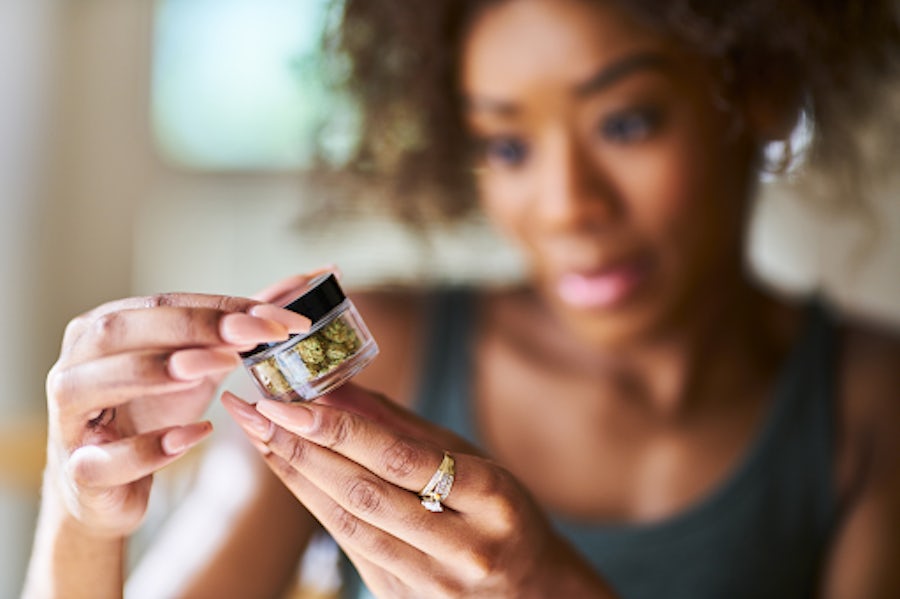

If your first experience with alcohol was a night spent chugging a gallon of rotgut, people would probably understand if you became a teetotaler. But what about with cannabis? In the absence of guidance or know-how, can people get turned off for good?
“My biggest fear is always that someone will try cannabis once and have a really bad experience with it and then never be open to trying it again,” Andrea Meharg, the cannabis science education partner at the Cannabis Coaching Institute told The Cannigma this week.
Meharg joined Corinne Tobias, the co-founder and Program Director at CCI to talk to The Cannigma about the importance of cannabis coaching in this golden era of legal weed, and how their own journey as patients led them to become Cannabis Coaches.
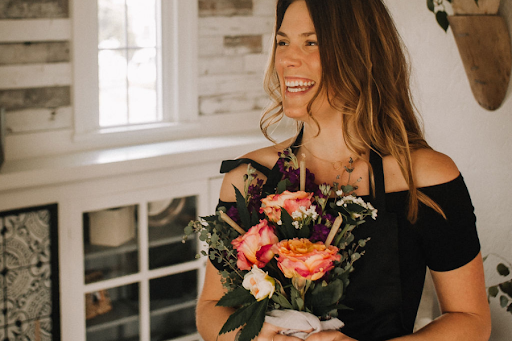
“I was a patient trying to find out the best information I could about using cannabis to help me with what I was dealing with,” Tobias said.
The author of three cannabis cookbooks and popular cannabis and health website Wake + Bake, Tobias said that while she was doing research she “started to see how much confusing and conflicting information was out there. It was really hard to navigate even back then as a patient.”
Tobias, who was using cannabis to treat pain and degenerative disc disease, said that she realized that there was a knowledge gap, and that “people needed a lot more support than they were being given by doctors and by people who worked in dispensaries and so it became kind of an obsession. How do we best support people as they navigate this plant? Because it shouldn’t be on the consumer to do all this research and know all this stuff.”
Tobias said that it was a multi-year process for her to figure out which cannabis products worked and didn’t work for her, and her decision to enter the health and wellness industry was made in part to help other people on this journey.
Tobias published Wake and Bake in 2013, began coaching in 2016, and two years later co-founded the Institute.
Like Tobias, Meharg said that her journey began as a patient, when she used cannabis to help pull herself out of severe depression.
“It was cannabis that brought me completely out of the depression and allowed me to change and do a 180 on my life. I had the same frustrations as Corinne in that it took me forever to figure out what was working. My family doctor didn’t agree with [cannabis] and my cannabis doctor gave me no actionable advice.”
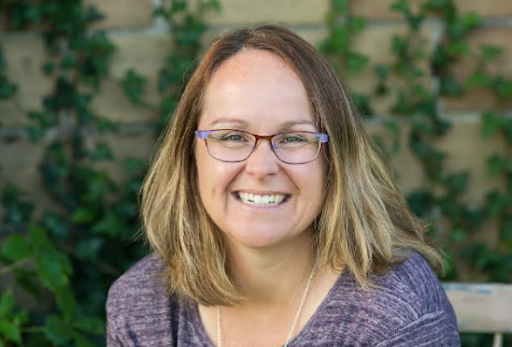
A look at the legal cannabis industry in 2021 makes it pretty clear why people like Tobias and Meharg have been drawn towards coaching.
From cannabis-infused syrups and balms to “canna cigars,” moon rocks, sun rocks, and nano-emulsified cannabis beverages, the world of marijuana in 2021 is an entire solar system reaching far, far beyond pot brownies and pinners of brick weed.
With so much variety on the shelves, consumers who are looking to use this plant as a health and wellness tool can easily fall between the cracks.
“After starting my website, I got thousands of questions about cannabis, so I know that people are struggling with how to use this plant in a way that’s consistent. For a lot of people, going to a dispensary only leaves patients feeling more confused, and they don’t know where to turn,” said Tobias.
How does the average consumer know how to easily and effectively hone in on what will work best for them?
In the absence of reliable, well-informed advice from healthcare professionals, how can medical cannabis patients be confident that they have the knowledge and guidance they need to find the medicine that will work effectively and consistently?
How do they choose between edibles, tinctures, smoking, vaping, and topicals? How do they know whether they should be taking a nano CBD product or a full spectrum one? What about incorporating CBG, CBN or Delta 8?
Also, once they do find a medicine that works for them, how will they know the right dose to take and when to take it?
Cannabis is a remarkably safe medicine, but patients can still find themselves wading through so much misinformation and taking years to find something that actually works for them.
Cannabis and cannabis-derived medications can have potentially harmful interactions with specific prescription medications, and not all cannabis preparations work the same for every condition or every patient.
“Everyone’s endocannabinoid system is different, and when we start looking at it from that perspective, it becomes much more nuanced than saying just ‘smoke a few puffs of this and you’ll feel sleepy or awake,’” said Tobias.
For instance, a specific high-THC formulation could work wonders for a patient coping with the pain of arthritis, but could also potentially aggravate their anxiety or paranoia. CBD has anti-inflammatory properties that can help ease a number of inflammatory health conditions, but could potentially cause nausea in high doses.
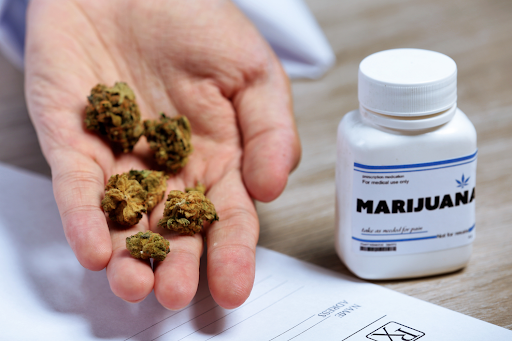
In addition, certain patients may be better served by a specific THC to CBD ratio, and may not have the know-how or the time to sort it all out by trial and error.
And just because a doctor is certified to prescribe medical marijuana doesn’t mean that they have the time or the expertise to give patients practical, actionable advice.
This is where a cannabis coach can make a big difference.
“A Cannabis Coach is a well trained, experienced and certified Health Coach who specializes in cannabis education,” notes Tobias.
From a cannabis education perspective, Cannabis Coaches know how the plant works in the human body and can help others navigate the dispensary shelves.
On the other hand, as trained Health Coaches, they also know how to ask the right questions, support habit change, and help their clients stay consistent and track what’s working over time.
“What we’ve seen is that when you combine these two tools [health coaching and cannabis education], you get much better results for clients that go beyond what they see when just supplementing with cannabis alone.
The research says that 35% of client improvement outcomes are based on creating a supportive relationship, so if you just come in with advice about how cannabis works and how to use it, your clients won’t have the experience they could have if you knew how to develop rapport and to use the skill set of coaching,” says Tobias.
On the day-to-day, every cannabis coach’s job looks different. They may spend their days doing cannabis consultations, writing content, developing recipes, facilitating cannabis clubs, working with healthcare professionals, leading workshops or retreats, or working with their clients one-on-one and in groups.
“Everyone comes to cannabis coaching with a desire to help others and to work with this plant, but Cannabis Coaches all have different visions of what that looks like to them. It’s not a cookie cutter profession. Our students are out there starting Youtube channels, working with doctors, writing books, and doing cannabis cooking workshops. There are so many things you can do.”
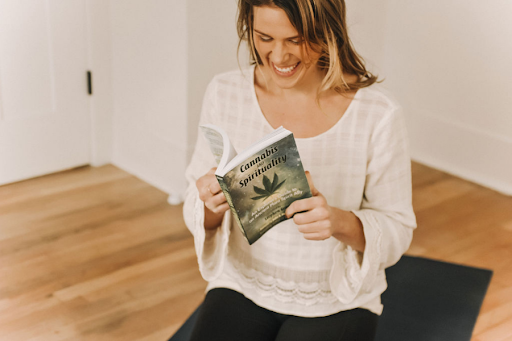
Cannabis coaches are not psychiatrists or therapists. They do not provide counselling or therapy sessions for their clients, though they do make use of some of the same skills, including the ability to listen to their clients express what concerns them, and help them find ways to achieve their goals.
Cannabis coaches are also not trained medical professionals. They cannot provide certification for a medical cannabis permit, nor can they diagnose any health conditions. They can, however, help patients navigate getting their cards in medical states.
The founders also describe a cannabis coach as someone who is an advocate for cannabis and how it can help people, and are confident to answer a wide range of questions about the plant, and understand “how to effectively support someone as they make changes in their lives.”
The Institute states that this entails more than just being passionate about cannabis and having the ability to give advice about the plant. It takes deeper know-how and a specific set of skills to guide clients around such a dynamic plant medicine.
The Institute’s six-month Cannabis and Health Coach Certification Program is a 4-module course that lays it out very clearly.
The courses provide an in-depth education of the nuts and bolts of what makes cannabis work, how and why it affects the human body the way it does, and how to set up a coaching practice to safely educate people about cannabis.
The program begins with the “Success Primer Series,” a video series that provides the tools and systems that can help someone break into the cannabis business.
The Cannabis Educator Training section of the program includes a deep dive into cannabis science, to provide the know-how coaches need. This includes subjects ranging from the anatomy of cannabis, essential cannabis compounds, cannabis and the human body, endocannabinoid dysfunction, and public education skills.
The Foundations of Coaching module provides training on how to set up a coaching practice and covers the ethics and professional guidelines cannabis coaches use to “stay in their own lane” while providing the best support and education possible.
The Cannabis Coaching Practicum module includes an 8-week cannabis and health coaching program to provide to potential clients, how to keep clients working towards their health goals, and how to help them when things aren’t going as well as they planned.
Finally, the Business Fundamentals module guides future coaches on how to set up and price their classes, and how to attract new clients. In addition, students get full wrap-around support with twice monthly calls from faculty plus a friendly and supportive online community with other students, graduates and staff.
For a limited time, from the 24th to the 26th of September, 2021, the institute is also running a free video training series called “3 Steps to Launching a Successful Cannabis Wellness Business,” which comes with a free workbook, including a business plan and cannabis business startup checklist.
The institute also includes three highly-trained graduate mentors and Elise Keller, a guest faculty member who covers cannabis and cancer. A breast cancer survivor, Keller is also a member of the Society of Cannabis Clinicians and a graduate of the Clinical Cannabinoid Medicine Program and the Medical Cannabis Institute.
The entire faculty, stuff, and ownership of the institute is female – and that’s not by accident. As women remain underrepresented in leadership roles in the cannabis industry, the institute states that it is “carving out a place for women in this industry,” and trying to build a network of successful female cannabis entrepreneurs that can help one another and help change the face of the industry.
The institute also states that it’s committed to building a “fun, supportive, and engaged community,” and that even long after students graduate, they can stay connected with former, current, and future coaching students.
Both Tobias and Meharg said that the goal of the institute is to have every graduate start their own cannabis business. But if it was up to Tobias, there would also be a cannabis coach working in every dispensary in the country.
“It is absolutely necessary that people who are providing access to this plant know exactly how it works in the human body. Unfortunately they don’t,” Tobias said, adding that most budtenders solely get retail product training. “When someone walks in and they say they want to sleep better, their knowledge typically ends at what bud is on the shelf is labeled ‘Indica’. We need to do better for patients.”
As the cannabis industry expands, consumers “are asking questions, but for the most part, they don’t know what questions to ask. And more often than not, budtenders don’t have science-backed answers,” Tobias added.
But while it could be easy to speak only in platitudes about our golden era of legal cannabis, arguably, the need for consumer education has never been more glaring.
“People probably need a cannabis coach way more now than they ever had before. Because although we have so much more access to information, it’s not all great. And it’s really, really hard to navigate for a lay person,” Meharg said.
As a new profession in an emerging field, Cannabis Coaches are carving a safer, easier, more effective way for patients and the general public to understand and utilise this plant.
For more information about becoming a coach and for a free class, visit the Cannabis Coaching Institute.